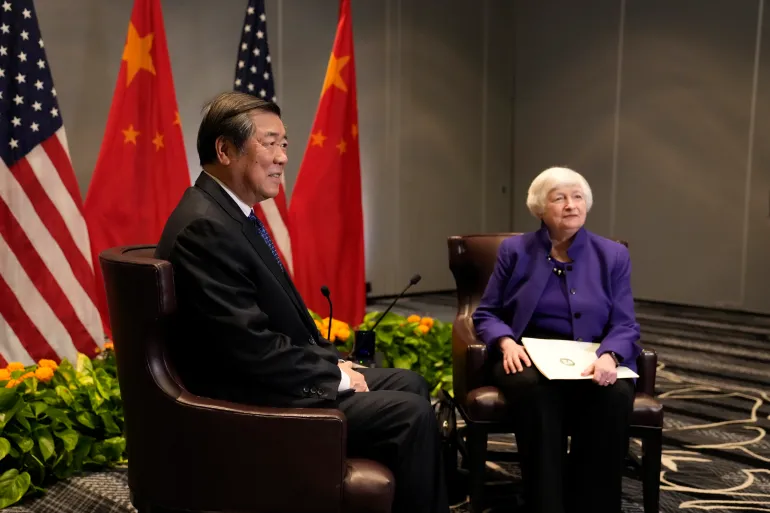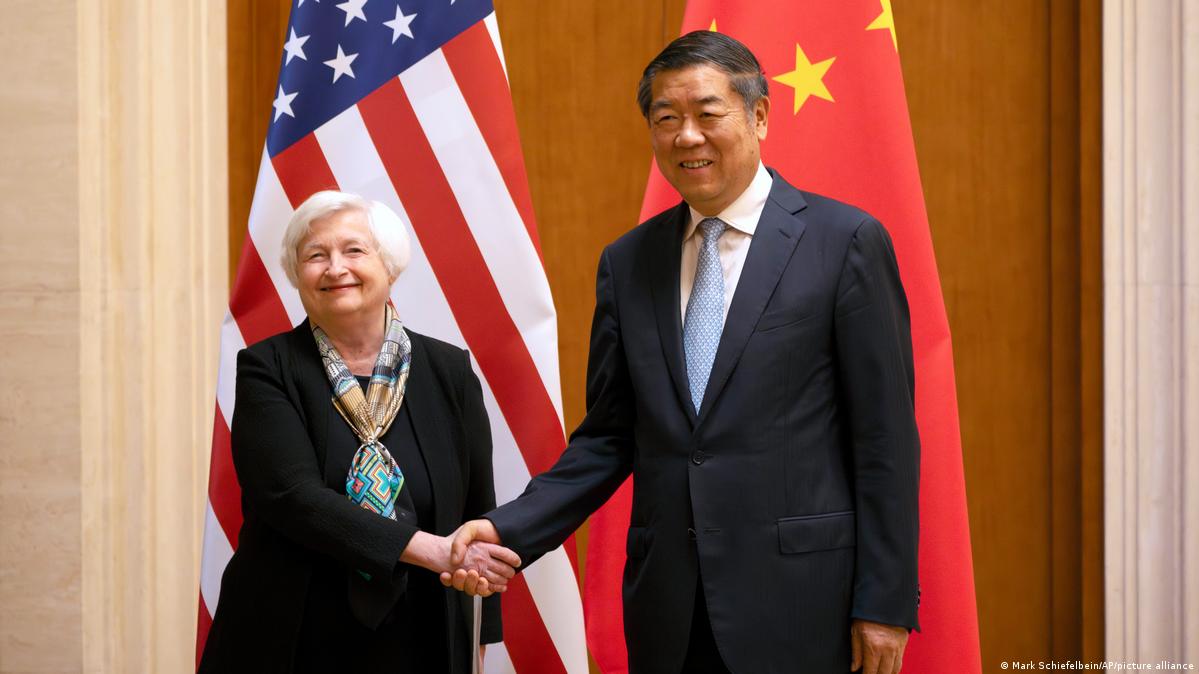In a recent statement that has garnered significant attention in the global economic arena, U.S. Treasury Secretary Janet Yellen emphasized the importance of maintaining ‘healthy economic relations’ between the United States and China. This comment comes at a time of heightened tensions and economic challenges between the two superpowers. In this blog, we explore the implications of Yellen’s statement, the current state of US-China economic relations, and the potential pathways towards healthier cooperation.

The Current State of US-China Economic Relations
The economic relationship between the U.S. and China has been characterized by a mix of interdependency and competition. Issues such as trade imbalances, intellectual property rights, and technological competition have been at the forefront of recent tensions. The ongoing trade war, initiated under the Trump administration, has led to tariffs and counter-tariffs, impacting global markets.
Yellen’s Call for Healthy Relations
- Balancing Competition and Cooperation: Yellen’s statement highlights the need to find a balance between competing interests and cooperative efforts, especially in areas like climate change, global health, and financial stability.
- Economic Stability: Healthy economic relations between the U.S. and China are crucial for global economic stability. As the world’s two largest economies, their interactions have far-reaching implications.
- Addressing Shared Challenges: Yellen’s emphasis on cooperation suggests a recognition that global challenges such as the COVID-19 pandemic and climate change require joint efforts from major powers.
Challenges to Achieving Healthy Relations
- Political and Ideological Differences: The differing political systems and ideologies of the U.S. and China pose significant challenges to harmonious relations.
- Security Concerns: Issues like cybersecurity and regional security, including the South China Sea and Taiwan, continue to be points of contention.
- Economic Policies and Practices: Divergent economic policies and practices, including state subsidies and market access, remain obstacles to improved relations.
Pathways Forward
- Diplomatic Engagement: Continuous diplomatic dialogue is essential for addressing misunderstandings and finding common ground.
- Trade Agreements and Negotiations: Revitalizing trade negotiations and working towards mutually beneficial agreements can help ease tensions.
- Multilateral Cooperation: Engaging in multilateral frameworks can provide a platform for the U.S. and China to collaborate on global issues.
A Delicate Balancing Act
Secretary Yellen’s call for healthy US-China economic relations is a reminder of the delicate balancing act required in international economics. While competition is inherent, finding avenues for cooperation and mutual benefit is essential for global economic health and stability. As the world navigates a myriad of challenges, the role of the U.S. and China in shaping a cooperative economic future becomes increasingly significant.
